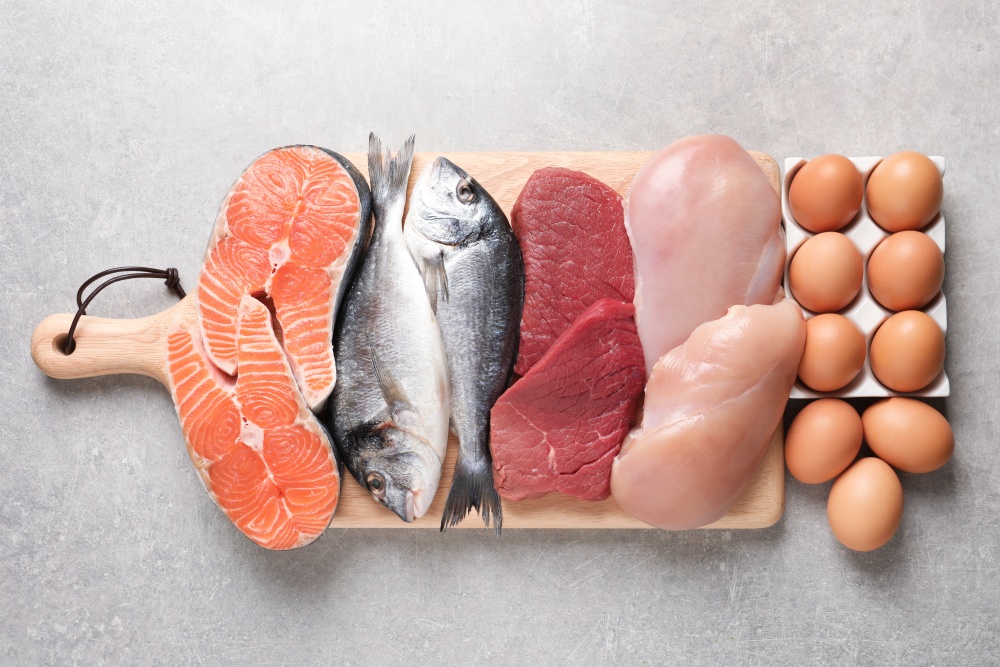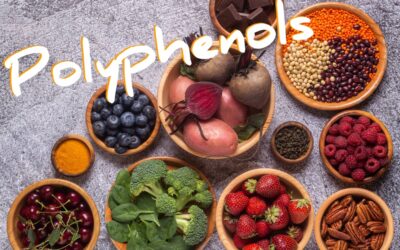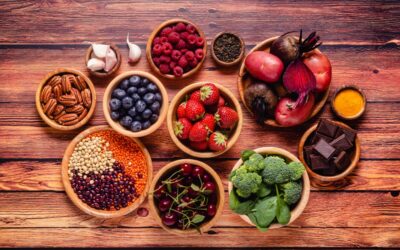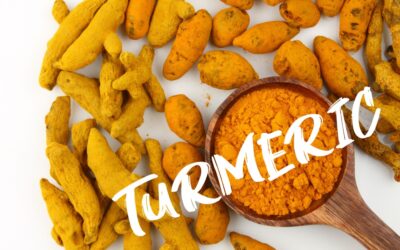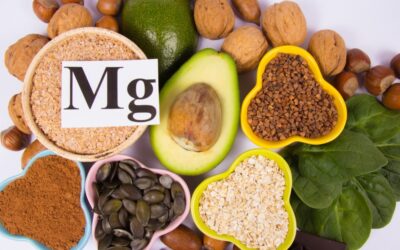Protein, often referred to as the “building blocks of life” is arguably the most critical macronutrient for brain health and repair and disease prevention as we age. One of three macronutrients found in food the body is primarily composed of protein (second only to water).
Proteins are essential for the growth, repair, and maintenance of tissues in the body (muscles and bone integrity), and they also play a role in many other bodily functions, such as enzyme production, hormone regulation, and immune system function.
All of that said, in this article, you will learn the critical role of protein in the body, the different types and implications on brain health, and how to ensure you are getting adequate protein in your diet to maintain brain health and prevent disability as you age.
Protein Metabolism
The body has a complex system for regulating the production and breakdown of proteins. This process is called protein metabolism.
Protein Catabolism
Protein catabolism is the process of breaking down the protein in food into amino acids that are then absorbed into the bloods stream.
Protein Anabolism
Protein anabolism is the processed of taking the amino acids and converting them into functional proteins.
Amino Acids
Amino acids are the building blocks of proteins. There are 20 different amino acids that the body needs to function properly, and they can be divided into two categories: essential and non-essential. Essential amino acids cannot be produced by the body and must be obtained through the diet, while non-essential amino acids can be produced by the body.
There are 9 amino acids that cannot be produced by the body and must be consumed through food. These include
- Valine
- Isoleucine
- Leucine
- Methionine
- Phenylalanine
- Tryptophan
- Threonine
- Histidine
- Lysine
What is the function of amino acids in the body?
- Tissue growth and repair
- Enzymes used for bodily functions (digestion, energy production, blood clotting, and muscle contraction)
- Act as hormones: chemical messengers that allow cells to communicate with one another
Protein Deficiency
It is important to note that if one essential amino acid is not available, protein synthesis can’t occur. With that said, protein deficiency (hypoproteinemia) has been linked to:
- Muscle loss
- Slowed growth
- Weakened immune system
- Weakened lungs and heart
What is a complete protein?
Foods that contain all of the essential amino acids are called complete proteins. These foods include:
- Beef
- Poultry
- Fish
- Eggs
- Dairy
- Soy
- Quinoa
- Buckwheat
Do amino acid supplements work?
There is little evidence that amino acid supplements are effective in protein synthesis in the body
Can you eat too much protein?
Consuming too much protein can also have negative effects on the body. Excess protein is converted into fat and stored in the body, which can lead to weight gain. It can also put a strain on the kidneys, which are responsible for filtering out waste products from the body.
Plant versus Animal Protein
Plant proteins and animal proteins differ in several ways, including their amino acid profiles, digestibility, and nutrient content. It is important to note that plant proteins do not contain all 9 essential amino acids.
Amino acid profiles
Animal proteins, such as those found in meat, eggs, and dairy products, are considered “complete” proteins because they contain all of the essential amino acids that the body needs. Plant proteins, on the other hand, are often considered “incomplete” because they may be lacking in one or more essential amino acids.
Digestibility
Animal proteins are generally more easily digested and absorbed by the body than plant proteins. This is because animal proteins are more similar in structure to human proteins, making them easier for the body to break down and use. Plant proteins, on the other hand, may contain compounds that interfere with digestion and absorption, such as phytates and fiber.
Nutrient content
Animal proteins are often higher in certain nutrients, such as vitamin B12, iron, and zinc, than plant proteins. However, plant proteins are often higher in other nutrients, such as fiber, antioxidants, and phytochemicals.
With all that said, plant-based diets require a deep understanding of how to combine plant proteins to ensure the body is getting all 9 essential amino acids to make it a complete protein. For example, beans are NOT a complete protein and must be combined with rice.
Articles you may be interested in:
Exploring the Connection Between Cortisol, Stress, and Overall Health
The “Longevity” game is not about living long, but living “well”. And the hidden player calling the shots might be cortisol, aka the stress hormone. As stress permeates our lives, its effects on our overall health become increasingly apparent. In this article we will...
Polyphenols: Health Benefits and Food Sources
I have long believed that a diet of fruits, vegetables, and seeds had a positive impact on overall health. A great example are studies looking at people who eat a Mediterranean diet (diet with a high concentration of fruits, vegetables and legumes). The reason might...
The Bleeding Edge: Film Review
We now live in an era where there is a medical device for most problems. Case and point, we can now replace a “degenerating hip”, fix a “dysfunctional heart”, prevent an unwanted pregnancy, “lift” a falling organ, drain unnecessary fluid from the central nervous...
Antioxidants: A beginners guide to understanding these powerful chemicals
Cardiovascular disease and cancer are responsible for 44% of deaths in the US. 6.2 million Americans are living with Alzheimer’s disease and nearly 1 million with Parkinson’s disease. All of these diseases have one thing in common, oxidative stress. But there is...
Turmeric: Health Benefits and Food Sources
There is a growing interest in people wanting to take control of their health and “longevity”. With this in mind, curiosity is growing surrounding the best “diet” for overall health and disease prevention. And of course, the jury is still out on whether or not there...
What sugar really does in the body
Is sugar really "bad"? I know most of us have been told that this is the evil of all evils when it comes to "health". But not so fast. Not all sugar is created equal. Sugar is one "type" of carbohydrate. And yes, some carbohydrates might not be optimal in some...
A Guide to Magnesium: The Mineral That Can Do a 180 on Your Health
Magnesium is an essential nutrient required to maintain overall health. However, nearly half of Americans don’t meet daily magnesium intake recommendations. Magnesium deficiency is associated with several diseases. It is vital to ensure your food intake boosts the...
Managing Stress with Diabetes Made Easy: Tips That Tip the Scale in Your Favor
Over 537 million people around the world live with diabetes. The condition affects a whopping 10.5% of the adult population, and there’s no denying how difficult it can be to manage it. One day, you’re living life to the fullest—eating your favorite cake, regularly...
Mindfulness: Health Benefits and Getting Started
Understanding Mindfulness, Its Benefits, and How To Get Started Mindfulness. We hear this word so often that it’s easy to dismiss it as the latest New Age fad. But before dispensing with the idea altogether, consider that mindfulness-based cognitive therapy has been...
The Minimalist: Less Is Now Review
In a world overwhelmed by the ceaseless noise of consumerism and material excess, there is a growing trend of people transitioning toward the perceived gateway to profound well-being. Minimalism, is fast becoming an appealing lifestyle that adopters believe has some...

